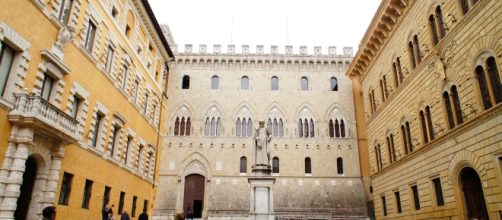A few days before Christmas, the Italian government was forced to approve a state bailout to save the indebted Monte Dei Paschi di Siena (#Mps), one of the most important and the most ancient bank in Italy. Behind the debt of MPS, there was an ambiguous (maybe illegal) managing directed by a "harmonious tangle," as defined by Stefano Bisi, the actual chief of GOI (Grande Oriente d'Italia), the most numerous freemasonry group of the country.
Unfortunately, also Bisi was apparently involved in the scandal of mismanagement, charged with having illicitly received money from the bank.
On the 14th of November, because of this, the treasurer of the GOI called for his resignation.
Masons in MPS
Numerous (and relevant) people spoke of freemasonry related to the bank: Mr. Ferruccio de Bortoli, the former editor of the Italian newspaper "Corriere Della Sera"; before him the banker Alessandro Profumo (who was president of MPS from 2012 to 2015); and then the former Italian PM Enrico Letta.
Also, the former president of the bank, Giuseppe Mussari (suspected to be the creator of MPS debt) is alleged to be a mason, even if he usually participates in the meeting of "Comunione e Liberazione" (CL), an influential catholic organisation.
Investments, inquiries and a mysterious suicide
The suppositions are carried on to explain strange actions of the bank, which in 2007-2008 bought another bank, Antonveneta, from the Spanish Banco Santander (which would be compensated for other loss in Italy, guessed Italian economist Claudio Borghi).
The acquisition cost around 9 billion of euro: 3 billion more of the estimated market price (all the operation cost probably 17 billion). The Italian central bank (led at the moment by the actual governor of EBC Mario Draghi) allowed the purchase, as the vigilance commission.
After this acquisition (and the crisis of 2008), in 2011 MPS register a loss of 4 billion and the bank began to collapse. Various prosecutor officers opened different inquiries: one for the acquisition of Antonveneta, one for doubtful (and riskiest) transactions in the branch of Milan.
Another inquiry was recently reopened for an alleged suicide. David Rossi, the responsible of communication of MPS, died on the 6th of March 2013, mysteriously fallen down from the window of his office: as appeared in the video of the death, spread again by the "New York Post" on the 12th of June 2016, Rossi landed as he threw himself from the wrong side, back turned.
He left a weird message to his wife, telling he was going to commit suicide, but a few days before his death he was thinking of speak with the prosecutor about the inquiries, revealed an email.
State bailout
The prosecutor has to find who is the responsible of the disaster, also beyond the relations between the bank and the political power (a foundation, whose counsel is mainly nominated by the major of Siena, controlled the bank till not long time ago).
The government instead now decided to put other money to save the bank, authorised by the EU (which have to explain how much it's necessary). State bailout has been managed in the past for other banks in the Northern Europe, with success.
A commercial bank
Whilst institutions look for a short-term solution, it's needed also a long-term solution. If the problems were the hazardous financial transactions that led to the debt - as it seems -, a legislation on avoiding riskiest operation for a commercial bank would be an answer (as stated at least by two different reports: Liikanen initiated by EU Commission, and Vickers initiated by the UK government).
Also, another structural problem affected Italy (and MPS): a high quantity of non-performing loans. Could a bank pay its debts without receiving its credits?

